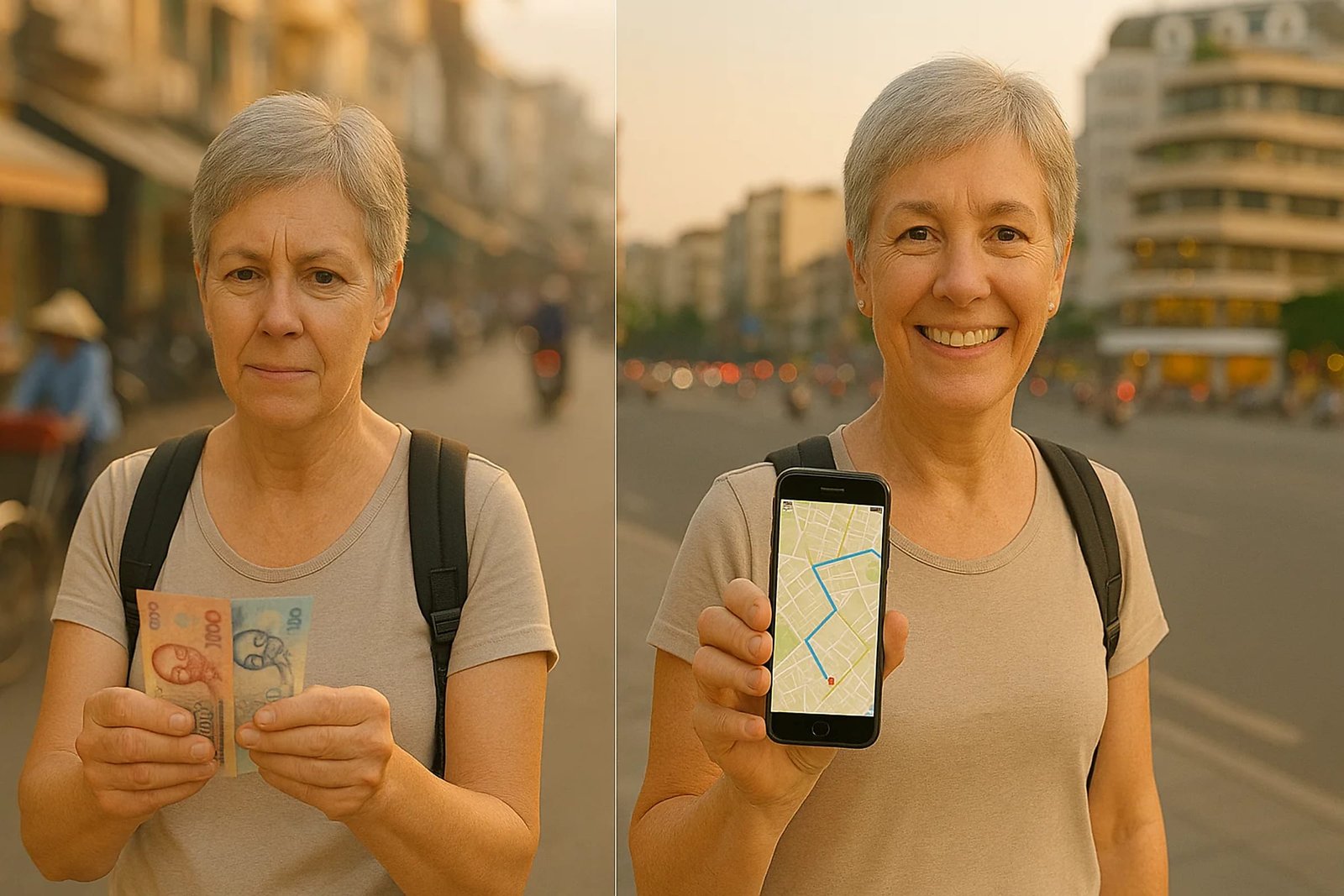Travel is an investment in yourself
Hey there, fellow adventurers! Are you ready to embark on the journey of a lifetime? If you’re over 60 and itching to explore the world, you’ve come to the right place. Let’s dive into everything you need to know about traveling abroad as a senior. Trust me, it’s going to be a wild ride!
Did you know that according to a recent study, 75% of seniors say travel is the number one leisure activity they’re looking forward to in retirement? That’s right, folks – age is just a number when it comes to wanderlust!
As someone who’s been around the block (and the globe) a few times, I’m here to share some nuggets of wisdom that’ll make your international adventures smoother than a well-aged whiskey. So buckle up, because we’re about to turn those travel dreams into reality!
Planning Your Trip: The First Step to Adventure
Alright, let’s get this show on the road! Planning is key when it comes to traveling abroad, especially for us older travelers. But don’t worry, it’s not as daunting as it sounds.
First things first, let’s talk about where you want to go. Are you dreaming of sipping espresso in a quaint Italian café? Or maybe you’re more interested in exploring the ancient temples of Japan? Whatever floats your boat, make sure to do your homework on the destination.
I remember when I decided to travel to Costa Rica. Man, was I in for a surprise! I thought I had it all figured out, but let me tell you, there’s a lot more to consider when you’re planning a trip abroad than just picking a sunny spot on the map.
Here are some things to keep in mind when choosing your destination:
• Climate: Will your body be comfortable in the local weather?
• Healthcare: Is there good medical care available if you need it?
• Cost of living: Will your budget stretch further in this country?
• Language: Can you communicate with the locals?
• Culture: Is it a place you’ll feel at home in?
Once you’ve nailed down your destination, it’s time to start thinking about the nitty-gritty details. And let me tell you, there’s nothing worse than realizing you’ve forgotten something important when you’re halfway across the world!
Here’s a quick checklist to get you started:
1. Check your passport: Is it valid for at least six months beyond your
planned return date?
2. Research visa requirements: Some countries require visas for entry.
3. Get travel insurance: Trust me, it’s better to have it and not need it than
the other way around!
4. Make copies of important documents: Keep one set with you and leave
another with a trusted friend or family member.
5. Plan your itinerary: But leave some room for spontaneity – that’s where
the magic happens!
Remember, planning doesn’t mean you have to schedule every minute of your trip. Some of the best experiences happen when you least expect them.
Packing Smart: Less is More
Okay, now that we’ve got the planning out of the way, let’s talk about packing. I know, I know, it’s tempting to pack everything but the kitchen sink. But trust me, lugging around a heavy suitcase is no fun, especially when you’re trying to navigate unfamiliar streets or crowded airports.
Here’s a pro tip: pack light and pack smart. I learned this the hard way when I tried to bring my entire wardrobe to S.E. Asia. Let’s just say dragging that massive suitcase up four flights of stairs in a quaint older apartment building without an elevator was not my finest moment!
So, what should you pack? Here’s a quick list to get you started:
• Comfortable walking shoes (your feet will thank you!)
• Lightweight, versatile clothing that can be layered
• Any medications you need, plus a copy of your prescriptions
• A photocopy of your passport and other important documents
And here’s something I wish someone had told me earlier: leave some space in your suitcase for souvenirs! You’ll want to bring back memories (and maybe a few trinkets) from your travels.
Staying Healthy on the Road
Now, let’s talk about something that’s on every senior traveler’s mind: health. Is it dangerous for elderly to fly? The short answer is no, not if you take the right precautions.
First off, make sure you’re fit to travel. Have a chat with your doctor before you book your trip. They can give you the all-clear and maybe even some tips specific to your health needs.
When you’re on the plane, remember to:
• Stay hydrated (but maybe skip the alcohol and caffeine)
• Move around every couple of hours to prevent blood clots
• Wear compression socks if you’re prone to swelling
And once you’re at your destination, don’t forget to:
• Stay hydrated (yes, I’m saying it again because it’s that important!)
• Wash your hands frequently
• Be careful about what you eat and drink, especially in countries where the water might not be safe to drink
Remember, there’s no shame in taking it easy. You don’t have to climb every mountain or visit every museum. It’s your trip, so go at your own pace!
Navigating Travel Restrictions and Requirements
Now, let’s talk about something that can be a bit of a headache: travel restrictions and requirements. These can change faster than my grandkids’ TikTok dances, so it’s important to stay up-to-date.
First things first, let’s talk passports. If you’re wondering about the passport meaning, it’s simple: it’s your ticket to international travel. Without it, you’re not going anywhere!
If you need help with passport applications or renewals, the U.S. Department of State website is a great resource. And here’s a hot tip: you can often get a USPS passport appointment right at your local post office. How convenient is that?
Now, when it comes to international travel restrictions, things can get a bit tricky. Some countries have specific requirements for senior citizens, like proof of travel insurance or a doctor’s note saying you’re fit to travel.
Here’s what you need to do:
1. Check the official website of the country you’re visiting for the most
up-to-date information
2. Look into any visa requirements well in advance
3. Make sure your vaccinations are up-to-date (Always consult your doctor. Some countries require
specific ones)
4. Consider getting a medical clearance from your doctor, even if it’s not
required
Remember, it’s always better to be over-prepared than caught off guard at the border!
Budgeting for Your Adventure
Alright, let’s talk money, honey! Traveling doesn’t have to break the bank, even if you’re on a fixed income. With a little creativity and planning, you can stretch your dollars (or euros, or yen) further than you might think.
Financial Preparations
Notify your bank and credit card companies of your travel plans to prevent any holds on your accounts due to suspicious activity. It’s also wise to have multiple forms of payment, such as a credit card and some local currency. Be cautious when using ATMs abroad; opt for machines located in reputable areas, like banks or well-known establishments.
Here are some budget-friendly tips for the savvy senior traveler:
1. Travel during the off-season: Prices for flights and accommodations are
often lower, and popular destinations are less crowded.
2. Look for senior discounts: Many hotels, restaurants, and attractions offer
discounts for older travelers. Don’t be shy about asking!
3. Consider alternative accommodations: House-sitting or home exchanges
can be a great way to save on lodging costs.
4. Use public transportation: It’s often cheaper than taxis or rental cars, and
it’s a great way to experience local life.
5. Cook some of your own meals: Eating out for every meal can add up
quickly. Try shopping at local markets and having a picnic in the park!
6. Look for free activities: Many cities offer free walking tours or have
museums with free admission days.
Remember, the best experiences often don’t cost a dime. Some of my favorite travel memories are of simply wandering through charming neighborhoods or chatting with locals in a park.
Understand Local Customs and Laws
Every country has its own set of customs and laws. Familiarize yourself with local etiquette to avoid any unintentional faux pas. For instance, in some cultures, it’s customary to remove your shoes before entering someone’s home. Being aware of these practices shows respect and can enhance your travel experience.
I recall visiting Japan and unknowingly tipping a waiter, which is not customary there. He politely returned the money, and I realized the importance of understanding local customs.
Embracing Technology: Your New Travel Buddy
Okay, I know what you’re thinking. “I’m too old for all this tech stuff!” But hear me out. Technology can be your best friend when you’re traveling, especially as a senior.
First off, smartphones are a godsend for travelers. With just one device, you’ve got:
• A map and GPS (no more getting lost!)
• A translator (hello, Google Translate!)
• An easy to use camera for seniors (for all those Instagram-worthy
moments)
• A way to stay in touch with loved ones back home
And don’t even get me started on travel apps. There are apps for everything these days – finding the best restaurants, booking last-minute accommodations, even learning a few words in the local language.
But here’s the thing: you don’t need to become a tech wizard overnight. Start small. Maybe download one or two apps before your trip and get comfortable with them. Trust me, once you see how much easier they make your travels, you’ll be hooked!
Making Connections: It’s All About the People
Now, let’s talk about something that’s close to my heart: the people you meet while traveling. Because let’s face it, the best part of any trip isn’t the fancy hotels or the tourist attractions – it’s the connections you make along the way.
As senior travelers, we have a unique advantage. We’ve got a lifetime of experiences to share, and people are often eager to hear our stories. Plus, we’re not in such a rush anymore, which means we can take the time to really get to know a place and its people.
Here are some ways to make meaningful connections on your travels:
1. Stay in locally-owned accommodations: B&Bs or small guesthouses often
offer a more personal experience.
2. Take a class or workshop: Cooking classes, language lessons, or craft
workshops are great ways to meet locals and other travelers.
3. Volunteer: Even if it’s just for a day, volunteering can give you a deeper
understanding of the local community.
4. Join a tour group: Look for tours specifically designed for senior travelers.
You’ll meet like-minded people and have built-in travel companions.
5. Strike up conversations: Whether it’s with the person next to you on the
bus or the waiter at a local café, don’t be afraid to chat!
Remember, every person you meet has a story to tell. And who knows? You might just make a lifelong friend on the other side of the world!
Stay Safe and Vigilant
While traveling is generally safe, it’s essential to remain vigilant. Keep your belongings secure, be aware of your surroundings, and avoid displaying valuable items openly. It’s also wise to have a copy of your important documents stored separately from the originals and consider leaving a copy with someone you trust back home.
Travel Insurance: Is It Worth It?
Absolutely! Travel insurance can provide peace of mind by covering unexpected events like trip cancellations, medical emergencies, or lost luggage. As older travelers, it’s crucial to ensure that any pre-existing conditions are covered. Take the time to compare different policies to find one that suits your needs. Keep in mind that Medicare won’t cover you while you’re abroad, so you need this added protection.
I am covered by SafetyWing. It’s health and travel insurance for nomads. You can check it out here. It covers me for things like:
- medical treatment and hospitalization,
- evacuation to a better equipped hospital,
- lost checked luggage,
- injuries from leisure sports and activities,
- motor accidents,
- trip interruptions,
- travel delays,
- evacuations from local unrest,
- arrangements in the event of death, etc.
This company is solid. They’ve been around for years and their coverage is extensive. Regardless of which plan you go with, don’t leave home without travel insurance. It is absolutely worth it for your own peace of mind.
Conclusion: The World is Your Oyster!
Well, folks, we’ve covered a lot of ground today. From planning your trip to making connections on the road, we’ve explored the ins and outs of traveling abroad as a senior. But here’s the most important thing to remember: there’s no one-size-fits-all approach to travel.
Your journey is uniquely yours. Maybe you’re looking to relax on a beach in Bali, or perhaps you want to challenge yourself with a trek through the Andes. Whatever your travel dreams may be, don’t let age hold you back. With the right preparation and mindset, the world truly is your oyster!
Remember to always prioritize your health and safety, but don’t be afraid to step out of your comfort zone. Some of life’s greatest adventures happen when we least expect them.
So, what are you waiting for? It’s time to dust off that passport, pack your bags (lightly!), and set off on your next great adventure. And hey, why not share your travel plans or experiences in the comments below? We’d love to hear from you!
And don’t forget to subscribe to our site for more travel resources tailored for savvy seniors like yourself. Whether you’re planning your first international trip or your fiftieth, we’re here to help you every step of the way.
Remember, life is short, and the world is wide. So let’s get out there and start exploring! After all, we’re not just traveling – we’re Turning Dreams into Destinations!





